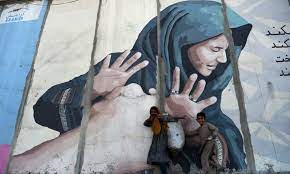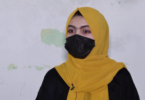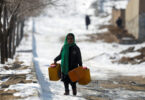KABUL (Khaama Press): A human rights organization in Afghanistan known as “Rawadari” has reported in its latest release, marking World Children’s Day, an alarming increase in various forms of violence against children in Afghanistan. This includes forced and early marriages, instances of self-harm, and violence within educational environments.
The organization “Rawadari,” led by the former chairperson of the Afghan Independent Human Rights Commission, Shahzad Akbar, emphasized in its latest report published on Sunday that the “laws protecting children, which had criminalized violent behaviours,” were revoked after the return of the Taliban administration, resulting in detrimental consequences for the human rights situation of children.
The documents from the Rawadari organization shed light on numerous violations of children’s rights in Afghanistan, with a predominant focus on girls.
This report examines the state of children from August 2021 to October 2023. The investigation involved interviews with 181 defence lawyers, judicial and legal personnel, victims, and their family members. Conversations were held with 139 males, 30 females, and 12 children across 25 Afghan provinces.
Rawadari hasn’t provided specific statistics on child rights violations over these two years. Still, it has highlighted cases of self-harm, forced marriages by members of the Taliban administration, early marriages, violence, and mistreatment of children in educational settings, as well as the recruitment of children as soldiers.
Local sources in Ghazni province have informed Rwadari that forced and underage marriages have increased significantly in this region. One documented case in Rawadari’s research reveals that a 17-year-old girl was forced into marriage without consent on October 22, 2022, leading to her tragic suicide. Another case involves a 15-year-old girl who was compelled into a forced marriage after being denied an education.
Underage girls forced into marriages by Taliban members
The Rawadari report reveals that despite the Taliban’s leadership order prohibiting underage marriages, this directive has not been adequately enforced. Commanders of the Taliban in various provinces have continued to engage in marriages with underage girls.
The report states, “In Nimroz province, a local Taliban official forcibly married a 13-year-old girl. Due to economic difficulties and security concerns, the victim’s family could not raise objections to this incident. In another case in Maidan Wardak province, a girl was married off by force before reaching the legal age of marriage for a sum of 600,000 Afghanis.”
In a similar incident, it has been reported that another Taliban commander in Imam Sahib District of Kunduz province married a 15-year-old girl without her family’s consent, despite having two other wives.
Another instance highlighted concerns a Taliban commander in the Darqad district of Takhar province who married a girl as his third wife on August 26, 2022.
Rawadari has also noted similar cases in Maidan Wardak province. They emphasize that many similar incidents have occurred in eastern provinces but are less publicized due to security concerns and cultural sensitivities.
Surge in suicide attempts among children
According to the Rawadari organization’s report, suicide attempts among children have increased in the past two years due to various reasons, including poverty and financial pressures. The organization, citing health centres in Bamyan province, has stated that 50% of the total recorded cases of suicide attempts in this province involve girls under the age of 18.
Local sources in Ghur province have reported a significant increase in child suicides. Additionally, this report has mentioned at least 35 cases of suicide in Badakhshan province, involving both boys and girls.
This report describes the factors contributing to child suicides as mostly family mistreatment, forced and early marriages, deprivation of the right to education, and despair, which have been exacerbated since the rise of the Taliban in the country.
Violence and mistreatment of children in schools and religious schools (Madrasa)
Recent research continues to show that over the past two years, the Taliban administration has placed its targeted individuals in positions of leadership, authority, and teaching in schools. These individuals, primarily graduates of religious schools, have contributed to violence and the punishment of children in the educational environment.
One source in Kandahar province has reported that the Taliban has placed its targeted individuals in various educational positions, leading to an increase in instances of punishment, including beating with sticks, using rulers, electric shocks, kicking, caning, boxing, pulling ears and hair, placing pens between fingers, making children stand on one leg, putting shoes in children’s mouths, suffocation, and forced labour.
Reports from organizations continue to highlight cases of sexual abuse in schools, citing several incidents in Badakhshan and Herat provinces where children endure sexual abuse. However, they cannot disclose these abuses due to concerns for their safety and cultural sensitivities.
According to some reports, children in Helmand province are being subjected to military training under the pretext of teaching religious studies, and in some cases, they are recruited as soldiers.
Meanwhile, on November 20th, the United Nations stated on the occasion of Universal Children’s Day that the rights of children are under attack in some parts of the world.
Samiullah Ebrahimi, the spokesperson for the Ministry of Labor and Social Affairs of the Taliban, has denied these claims and asserted that the allegations from the organization are not accurate. He claimed that approximately 10,000 children are supported in the country’s orphanages.







